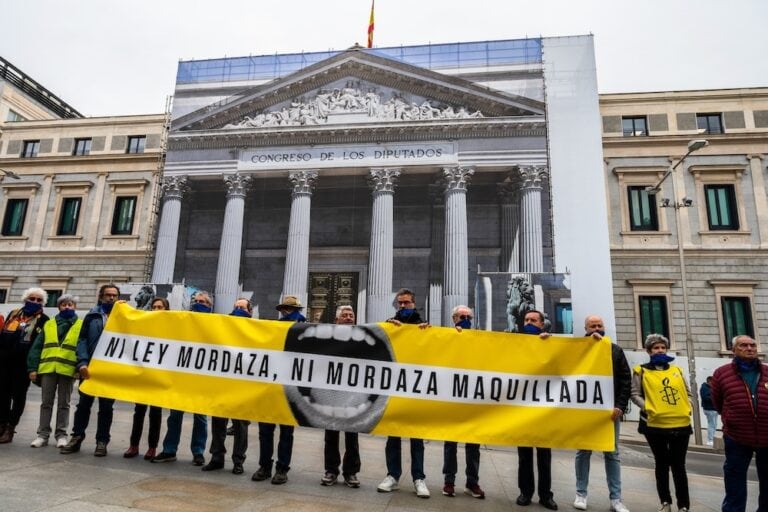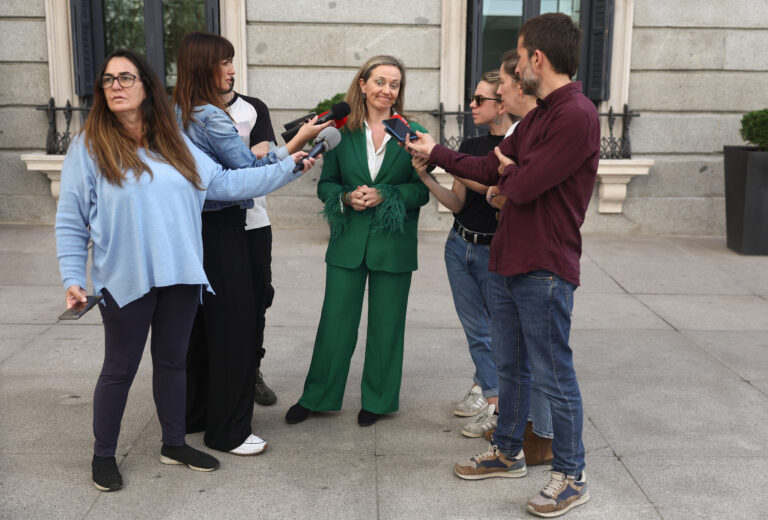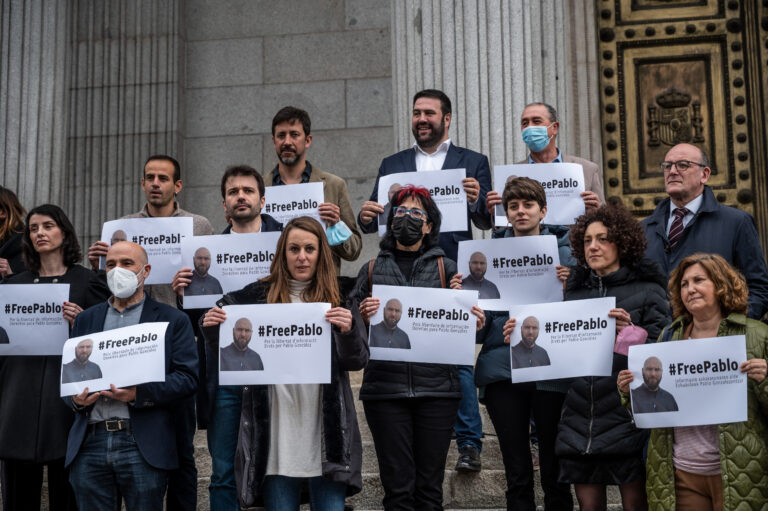(RSF/IFEX) – In a letter to Spanish Minister of Justice Angel Acebes, RSF expressed its concern about the implications for freedom of information in Russia of an eventual decision to extradite Vladimir Gusinsky to Russia. “The political stakes behind this entire matter are such that it is unlikely Vladimir Gusinsky can have a fair trial […]
(RSF/IFEX) – In a letter to Spanish Minister of Justice Angel Acebes, RSF expressed its concern about the implications for freedom of information in Russia of an eventual decision to extradite Vladimir Gusinsky to Russia. “The political stakes behind this entire matter are such that it is unlikely Vladimir Gusinsky can have a fair trial in Moscow,” said Robert Ménard, the organisation’s secretary-general. “The Media-Most group represents, notably through the NTV television station, the principal opposition voice with a national audience in Russia. We ask that you carefully consider the implications of a decision which could have serious consequences for pluralism of information in Russia,” added Ménard.
According to information collected by RSF, on 14 December 2000, Eduardo Fungairino, chief prosecutor for the Spanish High Court, announced that there was no legal obstacle to Gusinsky’s extradition to Russia. According to one of Gusinsky’s lawyers, named Astakhov, the extradition could be refused if the request is based on political considerations, in the context of the European Convention on Extradition.
Gusinsky, owner and president of the Media-Most press group, was arrested on 12 December in San Roque (in the Spanish province Cadix), following Russia’s assistant prosecutor-general’s issuing of an international arrest warrant against him on charges of fraud. Gusinsky had earlier refused to appear before the Russian public prosecutor’s office, and has not returned to Russia since July 2000. Gusinsky was first arrested in June 2000, and accused of “fraudulent privatisation”. He was released and the case was allegedly closed in July, following the signature of a secret schedule to an agreement with the state-controlled gas monopoly Gazprom, Media-Most’s major creditor. This text guaranteed the dropping of legal proceedings in exchange for the press group’s ceding to the state company. Gusinsky subsequently left Russia, denounced the agreement, and made public the schedule signed by the Russian communications minister, which confirmed the government’s involvement in the “transaction”.
Gusinsky had supported the reformer Grigory Yavlinsky, an opponent of Vladimir Putin, in last March’s presidential election. The NTV television station and the Echos of Moscow radio station, which belong to the group, often denounced corruption in the country and offered a different perspective on the Chechen conflict, broadcasting eyewitness accounts from war victims. The daily “Sevodnia”, also owned by Media-Most, published a series of articles about the political rise of certain Federal Security Service (FSB, former KGB) officials. Throughout the year, the Media-Most group was put under a great deal of pressure by the authorities. On 16 May, the Ministry of Information threatened to punish media which were “hostile to Russian interests”.


